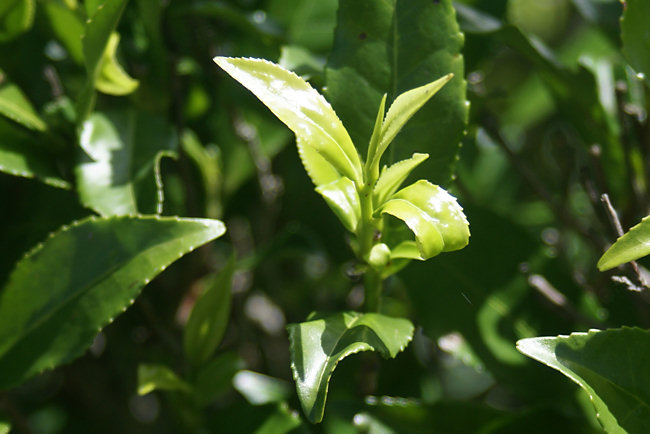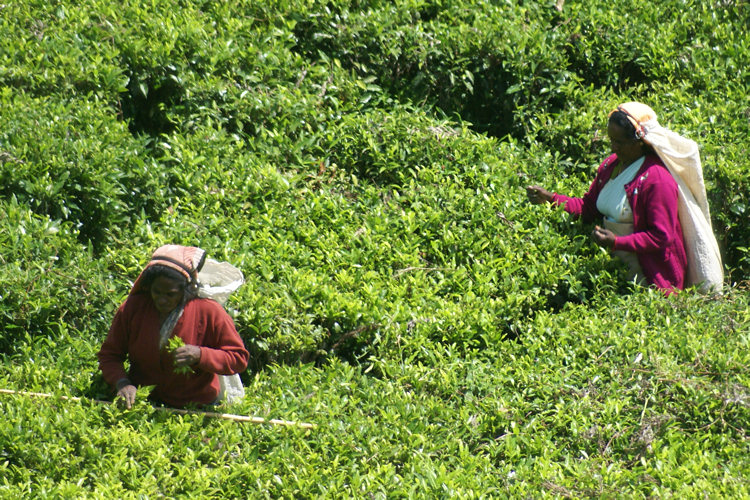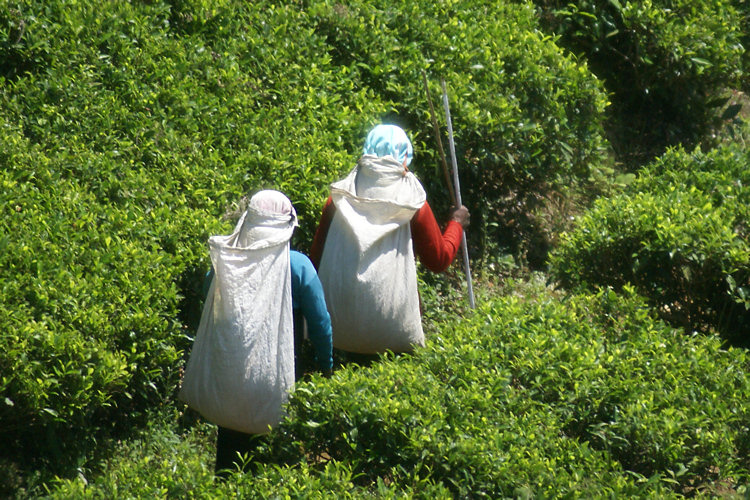Tea Plantations Workers in Sri Lanka
The climate, geography and geology of the Sri Lankan Highlands is ideal for tea cultivation but it is very labour intensive. The Ceylon tea growing British plantation owners imported cheap labour from the south of India. They were Tamils who spoke a different language from the Sri Lankan Singhalese and were Hindu rather than Buddhists.

This is the young new tea tip that is picked every 7 days to make ceylon tea in Sri Lanka tea
The British did not realise that by introducing a foreign workforce to Sri Lanka 150 years ago would lead to a civil war. A number of the hotels will run guided hikes through the tea plantations. You should be fit and wear stout shoes.
In 2012 the women Ceylon tea tip plantation workers in Sri Lanka on average only get paid about 700 rupees a day for picking 15 kilos of tea buds. Every kilo picked over that limit, they received 75 rupees. That is not a living wage. The do get free accommodation but they have to pay for the electricity they use.
Each family is given a plot of land on the estate where they can grow vegetables. The tea pickers get an hour lunch break and a half hour tea break in the day which starts at 7.30am, an hour after dawn. This enables them to see their children off to school. The finish work at 4.30pm.

Two Tamil tea plantaion workers picking tea bush tips to make ceylon tea in Sri Lanka
They rotate working fields on a seven day rotation. Once they pick the tips in one field they will move onto the next the following day. They will not return to the original field until seven days have elapsed. This is how long it takes for a new green tip to grow. Most tea picking teams are allocated to eight field plots on an estate.
It is very hard work. Some of the tea plantations are just under 7,000 feet high. If you feel a bit light headed as on your hike around the plantation fields it is either you are unfit, altitude sickness or a mixture of both. Just spare a thought for the women who work in these conditions.

When the workers bags are full with fresh picked tea bush tips they are sent to the factory.
Poisonous Snakes
I asked our guide who was escorting us through the tea fields if there were any poisonous snakes. 'No poisonous snakes up here', he said, 'too bleeding cold. The only snake we have is the red snake and that has no venom.'
Travel books

